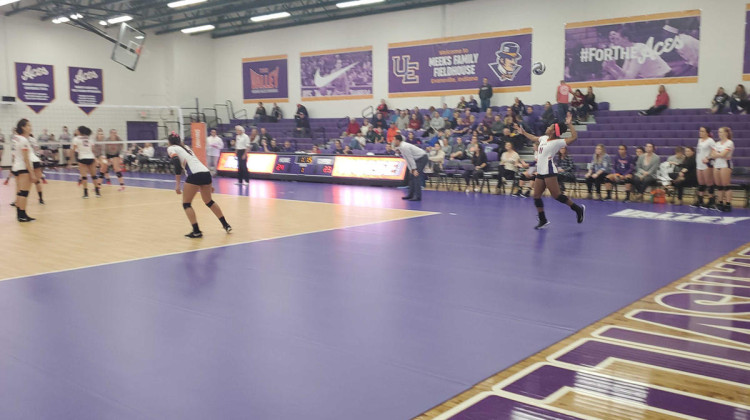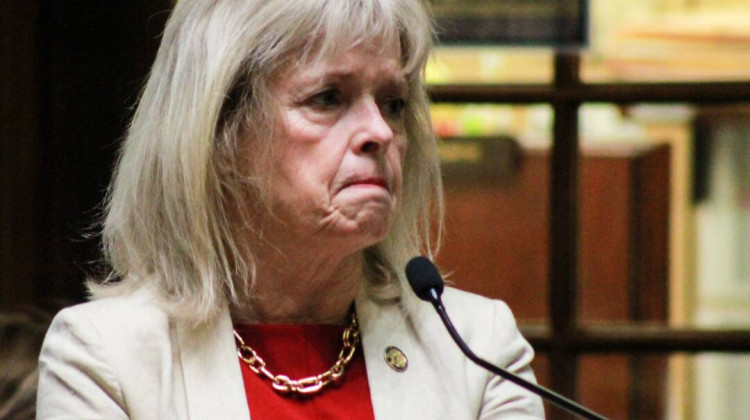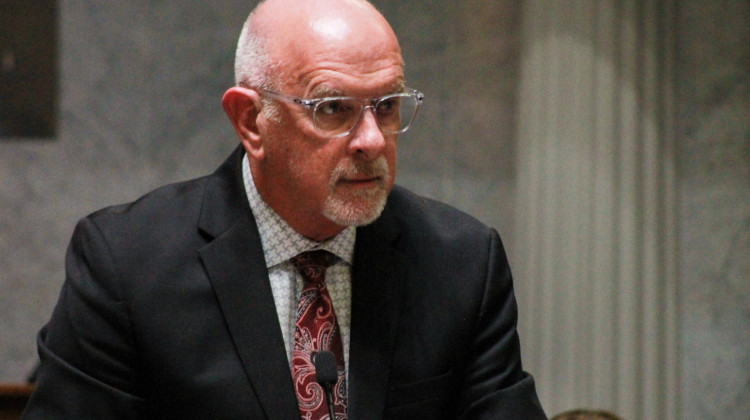
Collegiate transgender sports bans come after nearly half of U.S. states — including Indiana — have banned transgender girls from participating in girls school sports.
File photo: Samantha Horton / IPB NewsAn advocacy group of LGBTQ+ athletes and allies gathered outside the NCAA's Inclusion Forum for a "Day of Play" to rally support for transgender athletes.
The demonstration comes on both the heels of a smaller athletic association's near-total ban on transgender athletes and a lawsuit against the NCAA challenging its current policy.
a.t. furuya is the interim director of education for Athlete Ally — a national LGBTQ+ athletic advocacy group. They said the current policy already has "hoops to jump through" for transgender athletes.
"There's already inclusive policy, like there's already rigorous requirements in the NCAA," furuya said. "So, going an extra distance to intentionally discriminate against, you know, a very marginalized identity group is not inclusion."
The NCAA has had policies in place for transgender athletes since 2010. It developed new requirements in 2022, which included a three-phase rollout. furuya said those policies are already rigorous.
"Unless you're a trans person, like, you don't know how hard it is to even meet those requirements," they said.
READ MORE: What is gender-affirming care?
Join the conversation and sign up for the Indiana Two-Way. Text "Indiana" to 765-275-1120. Your comments and questions in response to our weekly text help us find the answers you need on statewide issues.
Part of meeting those requirements means having access to gender-affirming care. Dr. Anna Baeth, Athlete Ally's director of research, said tighter restrictions would run contrary to science and the reality of health care access.
"Ostensibly, by saying, 'OK, well, we're going to limit testosterone' they're saying 'we're not allowing trans athletes to participate,'" Baeth said.
Baeth said the research on the effect of testosterone levels in transgender women athletes is "murky" at best. And what is available suggests that transgender women who receive gender-affirming care have "no clear biological advantages" over their cisgender counterparts in elite sports and may even perform worse.
The NCAA's Board of Governors discussed the organization's current transgender athlete policy at a meeting and said it is under review.
"College sports are the premier stage for women's sports in America and the NCAA will continue to promote Title IX, make unprecedented investments in women's sports and ensure fair competition for all student-athletes in all NCAA championships," the NCAA said in a statement.
Collegiate transgender sports bans come after nearly half of U.S. states — including Indiana — have banned transgender girls from participating in girls school sports.
"If you really want to look at where the safety and the inequalities are — it's not like, 20 trans people out of 550,000 athletes at the NCAA. That's not it," furuya said. "And a lot of time and money is getting, I think, pulled in the wrong direction."
Lauren is our digital editor. Contact her at lchapman@wfyi.org or follow her on Twitter at @laurenechapman_.
 DONATE
DONATE






 Support WFYI. We can't do it without you.
Support WFYI. We can't do it without you.